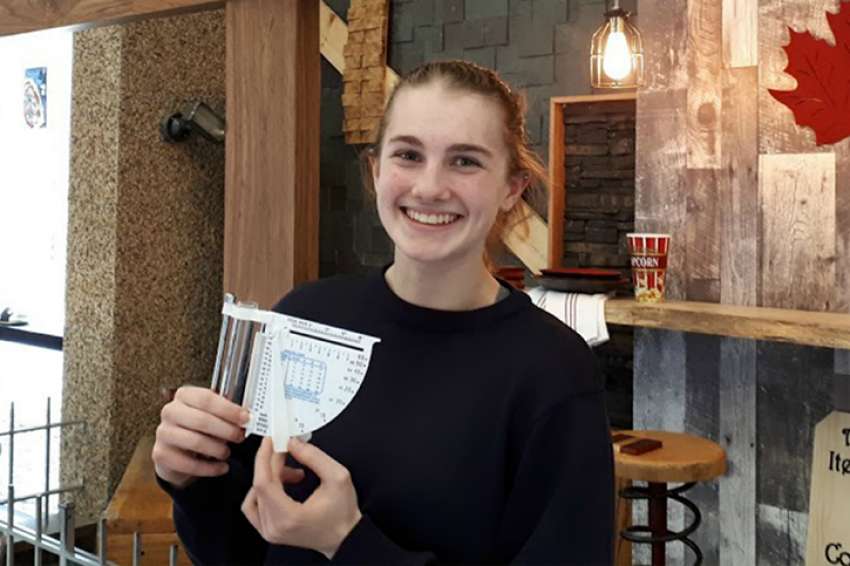Students at Holy Names High School are spearheading a massive multi-year data gathering effort to measure rainfall as a way to determine how weather and, indeed, climate is changing.
The Windsor area is an excellent place for such a study, with some of Canada’s wildest weather and in recent years extremely heavy rainfalls.
The area in southwestern Ontario is already known as “tornado alley” because of the frequency of wicked summer storms. But over the past two years the region suffered two “monsoon” downpours — each described as one in 100-year storms — that flooded hundreds of house basements, resulting in more than $200 million in damage. The monsoon comment was made by well known Environment Canada climatologist David Phillips, a Windsor native who often appears on national radio and TV, and who helped kick off Climate Crusaders in March.
To get a handle on the research, the Windsor Essex Catholic District School Board’s STEM (Science, Technology, Engineering and Math) Academy at Holy Names teamed up with the University of Windsor to gather rainfall data and analyze the results.
As many as 1,500 rain gauges will be distributed among Grade 8 students at schools around Windsor and Essex County.
Those students will take precipitation measurements from outside their homes and feed them into a specially-designed website and soon-to-be-created app. Then the Grade 9 Holy Names STEM students will collate and analyze the results with assistance from graduate students at the university.
“This is a perfect thing to begin monitoring and get students to see how the environment around them is changing,” said Chris Houser, the university’s dean of science, who pitched the idea to the school board.
Dan Fister, the board’s executive superintendent of innovation and human resources, said the recent local extreme weather patterns “hit close to home for us so we thought what a great opportunity for our kids to be able to collect real data.”
Fister said the initiative also furthers the goals of Catholic education. By allowing students to “chase their passions” and engage with the community and wider world “they can become critical thinkers and problem solvers, and quite truthfully in the Catholic spirit, to in some way better understand the world around them to make it a better place.”
According to John Chittaro, Holy Names’ social sciences department head, the information can be used to make real societal change.
“We can also get into problem solving about our infrastructure, how do our sewers handle the amount of rainfall, what does the city of Windsor need to do to prepare for these hundred-year storms if they indeed occur more frequently,” he said.
Chittaro said the geography component of the program, which uses electronic mapping, is far different from how past generations studied geography.
“The curriculum in the Grade 9 program now is issues-based, looking at issues in our use of natural resources, urbanization, issues that revolve around food security,” he said. “It’s much more than what you and I would recall as a traditional geography class.”
School principal Pat Hickson said the 1,500 rain gauges were purchased with a provincial education department grant.
Grade 9 student Samantha Clements said starting the program now makes sense given the type of weather the region has been experiencing, including an extraordinarily cold spring, unusual for one of Canada’s traditionally mildest climates in southwestern Ontario.
“I think it’s kind of funny that we started it this year and we’re getting such strange weather,” she said.
“It hasn’t happened since I’ve been born where we’ve gotten snow in the middle of April.”


